How to Change the Default Browser in Windows 11, Even for Widgets and Search
Microsoft makes it difficult to switch away from Edge.
Get Tom's Hardware's best news and in-depth reviews, straight to your inbox.
You are now subscribed
Your newsletter sign-up was successful
Microsoft really wants you to use its Edge Browser so much so that it's made changing the default browser in Windows 11 a little more difficult than in Windows 10. Instead of allowing you to simply change something called the "default browser" in the Settings menu, you now have to tweak file associations for particular link types such as .html files, .htm files, http and https.
In addition, we found that Chrome browser was unable to change these settings for you when we clicked the button to make it our default browser, instead dropping us into the appropriate menu to do it on our own. Though strangely Firefox could perform the same task by itself. Perhaps worst of all, though, is that even if you change the settings correctly, Microsoft will still open Edge browser if you click links that appear in Windows 11's Search function or its Widgets box.
Fortunately, it's easy to change your default browser in Windows 11 if you just follow these simple steps.
Changing the Windows 11 Default Browser in Settings
To be fair to Microsoft, a lot of the criticism it has taken over the default browser situation in Windows 11 is due to the fact that it simply doesn't call the settings you need to change "default browser" like it does in Windows 10. Instead, it hides the settings you need under the name of the app you want to be the default (ex: Chrome, Firefox), and a couple of different file associations
To change your default browser settings in Windows 11:
1. Navigate to the Default apps settings menu. The fastest way to get there is by using Windows search to search for "Default apps" and clicking the top result. Or you can click through to Settings->Apps->Default apps.
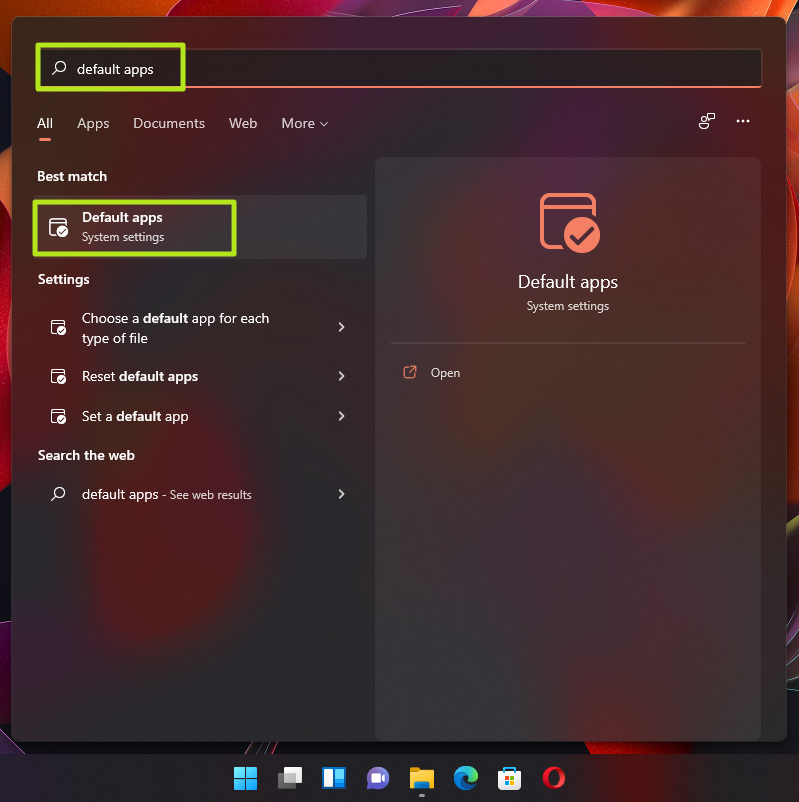
2. Scroll down and select the browser you want to be the new default (ex: Google Chrome).
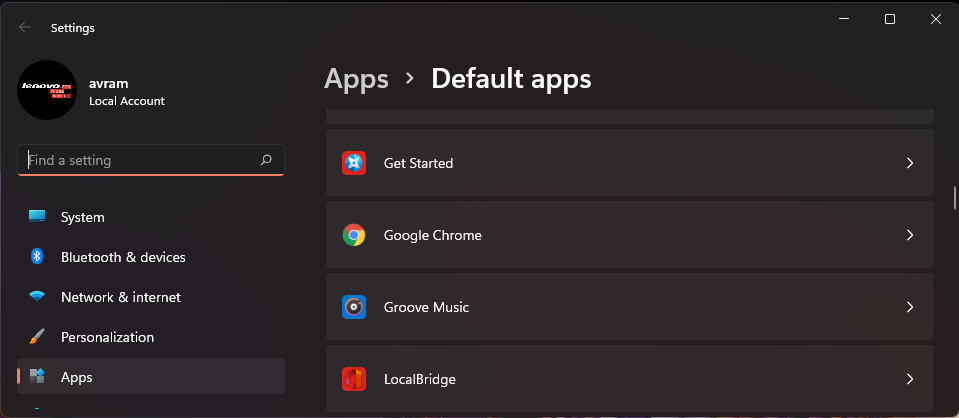
3. Scroll down to HTTPS and click the name of the current default browser (ex: Edge). A pop-up menu will appear.
Get Tom's Hardware's best news and in-depth reviews, straight to your inbox.
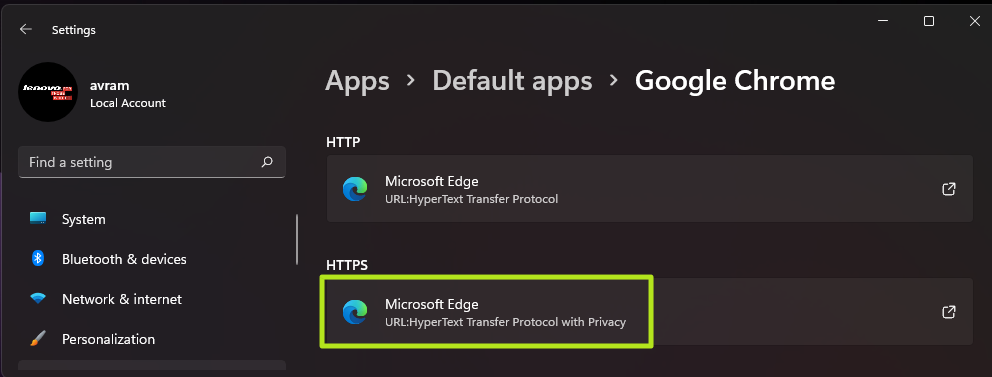
4. Select the new browser you want to be the default and click OK.
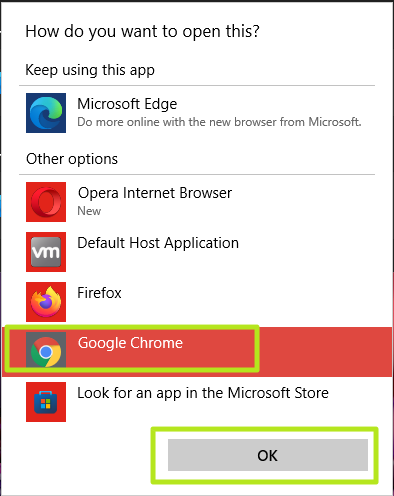
You will notice that the defaults have now changed for both HTTP and HTTPS. It seems that these are linked together. If, for some reason, this doesn't happen for you, repeat this action for HTTP as well.
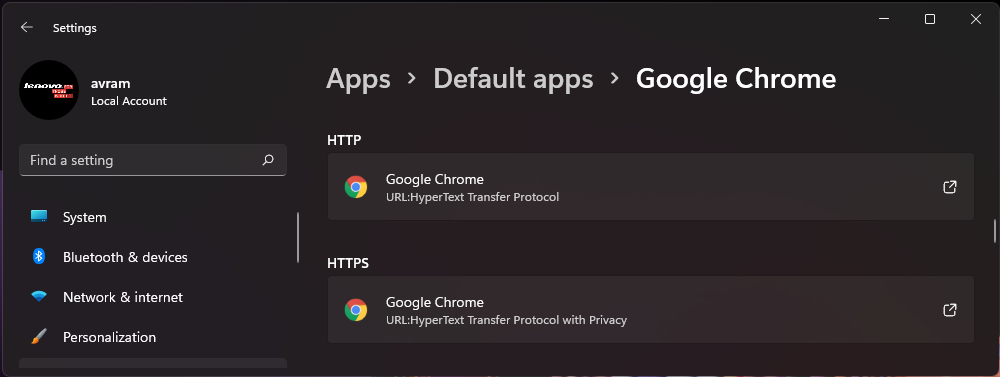
5. Repeat steps 3 and 4 for .htm and .html. At this point, you could stop and your default browser would be changed for all Web URLS you click on and even for local HTML files on your hard drive / SSD, which for most people is what matters. However, you can also set your preferred browser to open PDFS or more obscure formats such as XHTML and SHTML.
Setting the Default Browser for Search and News
Sadly, like Windows 10 before it, Windows 11 does not honor your default browser choice when you click on any web links that appear in Windows Search or in the news widgets. No matter what you have chosen in the Settings->Default Apps menu, it will still open these links in Microsoft Edge.
However, there's a freeware app called EdgeDeflector that fools Windows 11 (or 10) into redirecting these links to your default browser. Here's how to set it up.
1. Download and install EdgeDeflector. Note that, if you attempt to download this program in Edge browser, the browser will attempt to block it, claiming it is unsafe (thanks Microsoft; we're sure your motives are pure here) and you can click "keep" to make it download, but you're better off downloading in another browser anyway.
No matter how you download EdgeDeflector, Windows 11 will likely give you a warning message when you launch the installer. You will probably be confronted with a SmartScreen error saying that "Windows protected your PC" from this app (the color may be red). If so, click on the "More info" link.
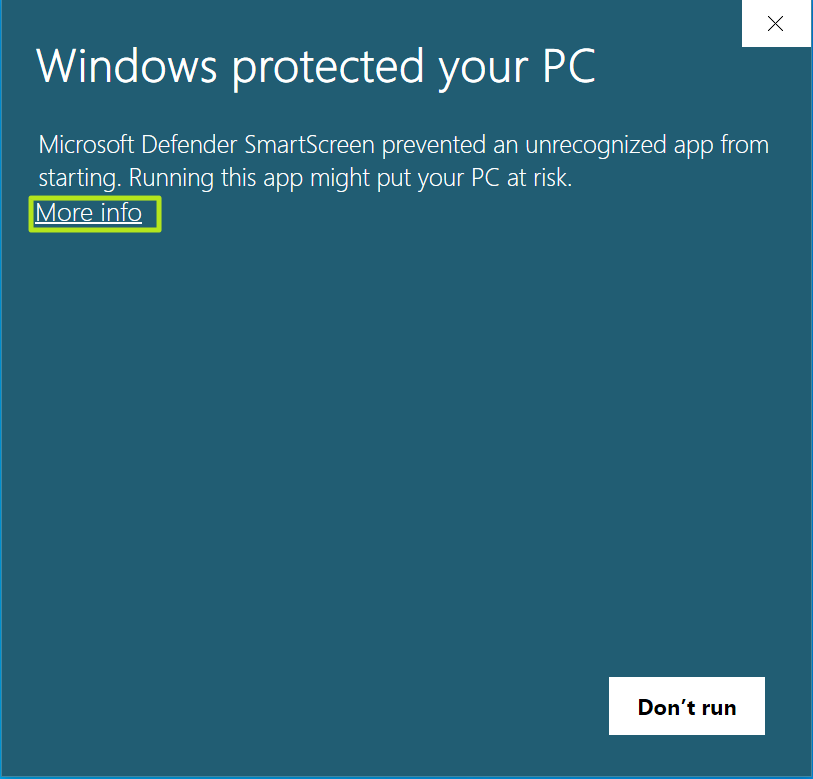
And then click Run anyway.

You can then finish the install.
2. Navigate to the Default Apps menu.
3. Select EdgeDeflector.
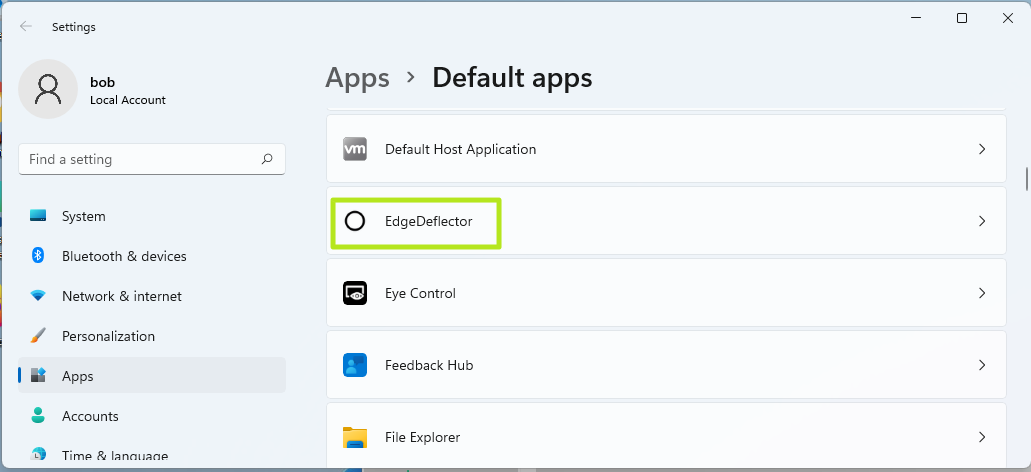
4. Click Microsoft Edge under the "Micosoft-Edge" subheader.
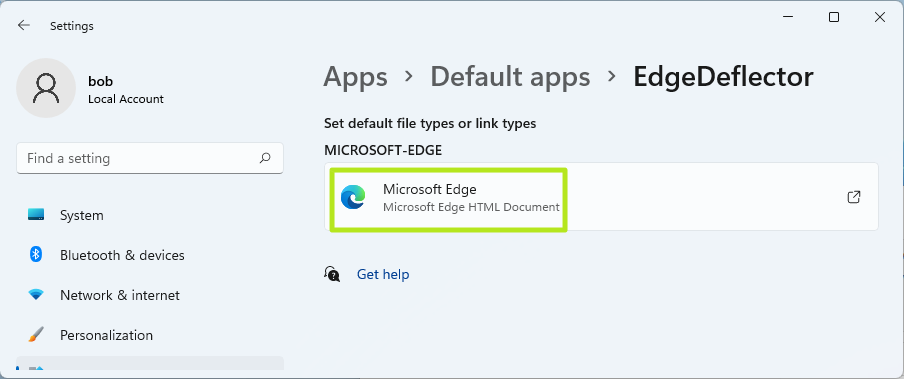
5. Click "Switch anyway" if prompted.
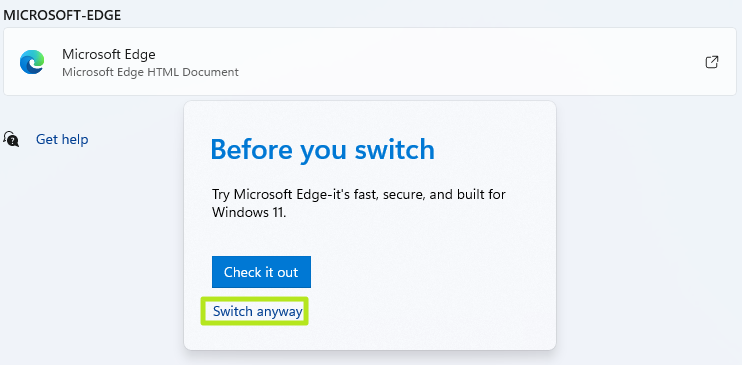
6. Select EdgeDeflector and click Ok on the pop-up menu.
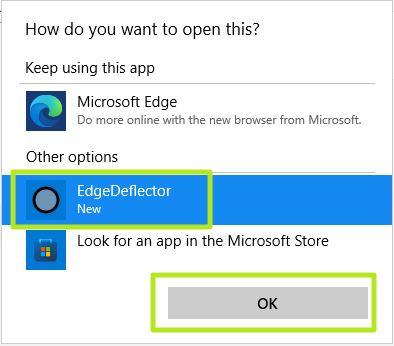
This should now allow links you click from Widgets or Windows Search to open in your default browser.
Avram Piltch is Managing Editor: Special Projects. When he's not playing with the latest gadgets at work or putting on VR helmets at trade shows, you'll find him rooting his phone, taking apart his PC, or coding plugins. With his technical knowledge and passion for testing, Avram developed many real-world benchmarks, including our laptop battery test.
-
Alvar "Miles" Udell To be fair though you have to admit Edge is a lot better than it used to be since it switched to Chromium and allowed Chrome Store extensions to be added. It got me to switch from Firefox for the first time ever since version 4 way back when, and between MS and Google having my data, I'd pick MS any day.Reply
We can only hope Mozilla turns Firefox around back into a real contender again before the web basically starts requiring Chromium if it's to load properly... -
Krotow ReplyAlvar Miles Udell said:To be fair though you have to admit Edge is a lot better than it used to be since it switched to Chromium and allowed Chrome Store extensions to be added. It got me to switch from Firefox for the first time ever since version 4 way back when, and between MS and Google having my data, I'd pick MS any day.
We can only hope Mozilla turns Firefox around back into a real contender again before the web basically starts requiring Chromium if it's to load properly...
Edge still make syncing between computers with Chrome and Android phones difficult. -
ezst036 I really hope Valve is successful with its new handheld. We need more Linux users to counter balance Microsoft's tactics.Reply
To be clear, setting the default browser is not the worst offense. It's just yet another in a long series of offenses going back decades from Microsoft. They still act like they don't have competition and to some extent, they don't. They would stop this if Windows were not still the largest by a wide margin. -
Alvar "Miles" Udell ReplyKrotow said:Why?
Because it's a great browser that integrates things like an adblocker without the need to extensions, syncs to desktop, and it's not Google?
Best Android browsers in 2021 | Tom's Guide (tomsguide.com) -
randomizer ReplyAlvar Miles Udell said:To be fair though you have to admit Edge is a lot better than it used to be since it switched to Chromium and allowed Chrome Store extensions to be added.
Only problem is that it further entrenched Chromium as the dominant browser. -
Alvar "Miles" Udell Replyrandomizer said:Only problem is that it further entrenched Chromium as the dominant browser.
Sadly true, Mozilla needs some heavy financial backing to bring Quantum, or a new engine, up to par with Chromium, in terms of speed, lightness, and features, and they need to quit fiddling with the UI trying to emulate Chrome and keep it distinct. -
Alvar "Miles" Udell Thing is though that since Chromium is open sourced, there's not really a downside to using it as a base since it effectually sets the standards now, unlike the 90s when proprietary IE set them. If Mozilla swapped Firefox it it they could sack the morons who continually make the UI worse, focus on security, privacy, speed, and efficiency, and make the mobile version a true competitor.Reply
They and volunteers, or maybe a merge with Canonical, could keep a non-Chromium Firefox version up as a fork for use on Linux (though Chromium works better, at least on Linux Mint on VBox) and for privacy minded Windows users, as an alternative. where speed and absolute efficiency are not the priority. -
randomizer ReplyAlvar Miles Udell said:Thing is though that since Chromium is open sourced, there's not really a downside to using it as a base since it effectually sets the standards now, unlike the 90s when proprietary IE set them.
It is technically open source, but in practice it's just a Google product. It's not a whole lot different to Android, except that the code isn't developed internally and then dumped on the internet once a year. Having Google set the standards (even if they're only de facto standards, like with IE) isn't a good thing because that means the standards are just what's best for Google. That may or may not align with what's best for everyone else. A lack of good competition hurts everyone except the dominant player.

